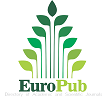Thanato - ethics, a necessary discipline for times of death
Abstract
Death accompanies life from the very moment of conception. This finite character of the human being has led people to wonder about whether death has value or not, and what are the implications of this question for their existence. From time immemorial, philosophy has reflected on the meaning of death; Bioethics has done the same over time. However, now the reflection on the meaning of death can be accomplished in light of a relatively new discipline, called Thanato-Ethics. Hence, this article explores, through this new discipline, the question of what the meaning of death is. Since death is a very complex reality, we had to take into consideration theoretic fields of knowledge -philosophy and the ethics of death- and practical knowledge -such as an analysis of the dimensions that surround the concrete act of dying. Later, we analyze the implication of euthanasia and assisted suicide. Finally, we conclude recognizing the importance and relevance of this discipline today.
Downloads
References
Asociación Española de Bioética y Ética Médica (AEBI) (2018). Comunicado de AEBI sobre la Eutanasia. Morir con dignidad. Madrid (2020): AEBI. Disponible en: Http://aebioetica.org/archivos/Conclusiones_y_comunicado_final.pdf. (s. f.).
Benítez, J. (2010). La bioética frente a la muerte, entre el sufrimiento y la eutanasia.PDF. Academia.Ed https:www.academia.edu/10986978/La_bio%C3%A9tica_frente_a_la_muerte_Entre_el_s ufrimiento_y_laeutanasia 2010. (s. f.).
Bonete, E. (s.f.) Ética de la muerte: de la bio-ética a la tánato-ética. Daimon Revista Internacional De Filosofía, (25), 57-74. Recuperado a partir de https://revistas.um.es/daimon/article/view/14801. (S. F.). (s. f.).
Bonete, E.(s.f.), Implicaciones éticas de la muerte. la ciudad de Dios, R, CCXIII.2000 Pp.1025 -1047. (s. f.).
Bonete, E. (2019). El morir de los sabios. Una mirada ética sobre la muerte, Madrid: Tecnos, 2019. (s. f.).
Cabodevilla, I. (1999). Vivir o morir conscientemente. Desclée de Brouwer, Bilbao.
Escalante, J. (2000) Muerte encefálica. Evolución histórica y situación actual. Revista Medicina Intensiva, Vol. 24, No. 3, 2000. (s. f.).
Escobar, J. (2000). El morir como ejercicio final del derecho a una vida digna. Bogotá, Colombia: Uni- versidad El Bosque; 2000. (s. f.).
Fascioli, A. (2016) los cuidados paliativos al final de la vida: expresión del reconocimiento del otro, Revista, Enfermería: Cuidados Humanizados, Vol. 5, no 2— Diciembre 2016—ISSN: 1688-8375 ISSN en línea: 2393-6606. (s. f.).
Macellari G. (2002) La muerte: Un bien incurable. Desde el arte de morir hasta la eutanasia. Madrid: Coope- ración Editorial; 2002. (s. f.).
Martín, F. El ideal del sabio Séneca, publicación de la Caja de Ahorros de Còrdova, Caps. III y IV, pp. 113 -166. (s. f.).
Méndez, V. (2002) Sobre morir: Eutanasias, derechos, razones. Madrid: Trota; 2002. 02. (s. f.).
Platón, Fedón, Espasa – Calpe, Madrid, 1982. (s. f.).
Requena, P. (2009) El diagnóstico de muerte cerebral, persona y bioética Revista, PP. 128_136. 2009. Julio—Diciembre 2009... (s. f.).
Sánchez, S. (2001) La pasión de morir, preguntas y respuestas desde la vida, Biblioteca Nueva Madrid, (s. f.).
Shopenhauer, A.(s.f.), El amor, las mujeres y la muerte, Edaf ; Madrid. (s. f.).
Sociedad española de cuidados paliativos (Secpal). (2002) Declaración sobre la eutanasia. Madrid: Secpal; (s. f.).
Ramos, S. (2017) Algunas reflexiones filosóficas sobre el modo de concebir la muerte, en Revista de Treball Socia (RTS)– no 210, (s. f.).
Salgado, L; De la Ossa V; Montes,D; González T. (2020) Coronavirus, salud pública y mundo Revista Colombiana Ciencia Animal. Recia. 2020; 12(1): e769. Https://doi.org/10.24188/recia.v12.n1.2020. (s. f.).
Torres, J. (2012), Aspectos éticos y legales de la muerte, Tesina, 24 de abril 2012.Asociación Mexicana de Tanatología. (s. f.).
Zurriaráin, R. (2019), Cuidado paleativos, Soclución ética acorde con la dignidad humana al final de la vida, Revista, Pers Bioet. 2019; 23(2): 180-193. DOI: recuperado a partir de https://doi. Org/10.5294/pebi.2019.23.2.2. (s. f.).
The authors retain copyright.
This work is under international license Creative Commons Attribution 4.0.
The articles published by the scientific journal "Notes on Bioethics" of the Universidad Catolica Santo Toribio de Mogrovejo, Chiclayo Peru, can be shared through the international public license Creative Commons Attribution CC BY 4.0
























 LIBRARY USAT
LIBRARY USAT